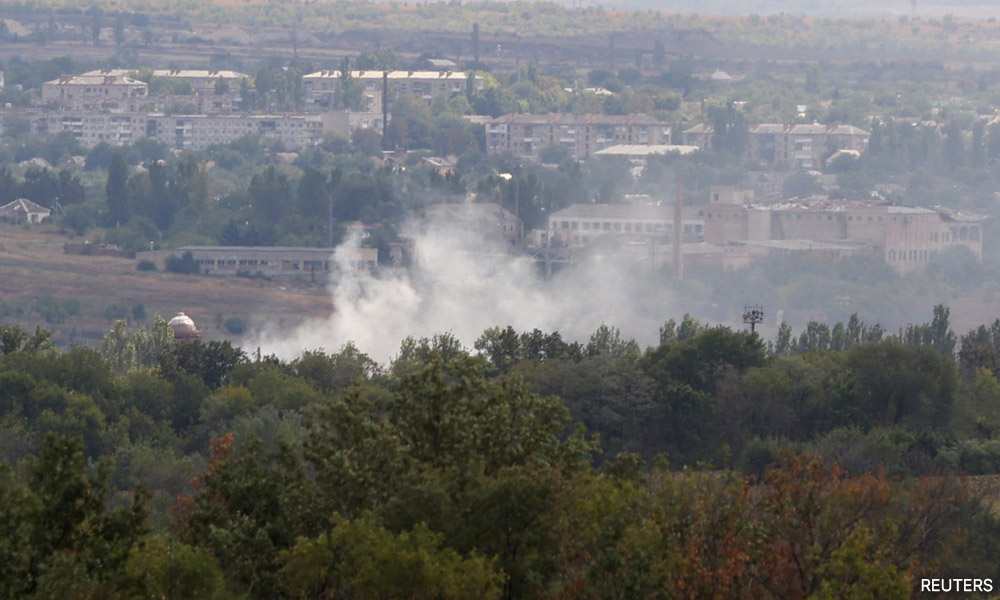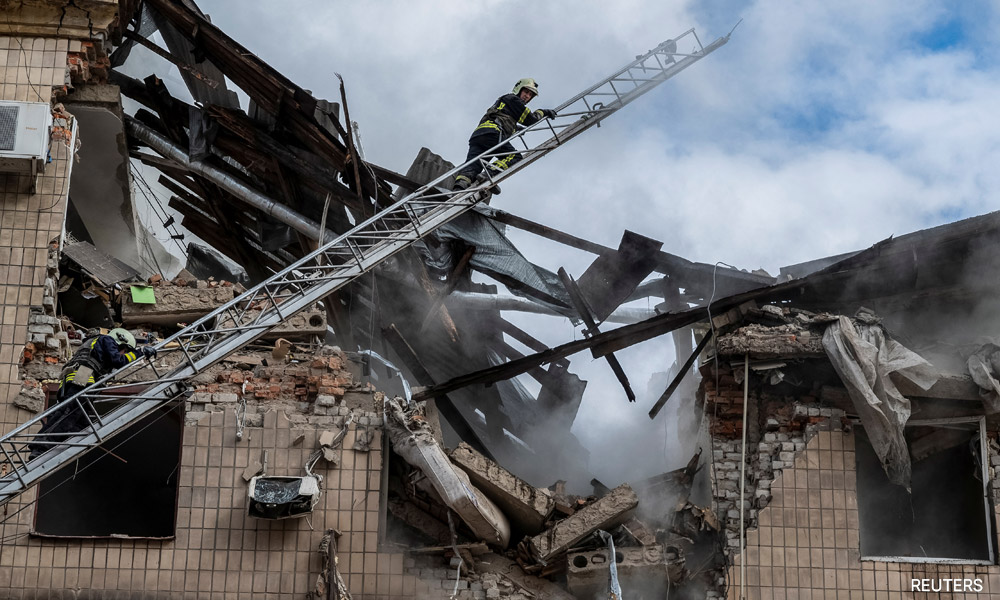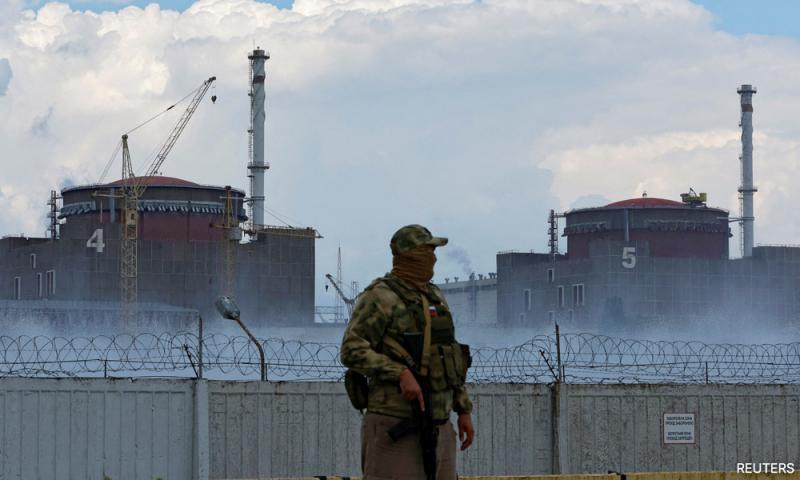Ukraine says it downed Russian missiles, UN pushes for nuclear plant's safety
Ukrainian forces shot down five Russian cruise missiles on Tuesday, most of them in the south, President Volodymyr Zelenskiy said, but he made no mention of new military success in the east hinted at by officials earlier.
"This morning alone, five of six Russian X-101 missiles were downed," Zelenskiy said in an evening address. "This is a costly loss for Russia, and it saves many Ukrainian lives. Four of these missiles were downed by the South district of the air command."
Reuters was not able to independently verify Zelenskiy's statement and there was no immediate response from Russia.
Though Ukrainian officials did not give specific details, several posts on social media from military bloggers and witnesses reported fighting around Balakliia, an eastern town of 27,000 people that lies between Kharkiv and Russian-held Izyum, a city with a major railway hub used by Moscow to supply its forces. One tweet by a Zelenskiy adviser spoke of "great news" coming from the president on the operation in the Kharkiv region.
Reuters was unable to independently verify the reports posted on social media.
Little information has emerged about the progress of the main Ukrainian offensive in the southern Kherson region, with Kyiv barring journalists from the front line and releasing only limited reports to preserve the element of surprise.
Russia says it has repelled the Kherson assault, but Ukraine has reported steady success.

Western military experts say Ukraine's aim in the south appears to be to trap thousands of Russian troops on the west bank of the wide Dnipro River and cut them off by destroying their rear supply lines.
The announcement of a simultaneous Ukrainian advance near Kharkiv was an indication that Russian troops were having difficulty reinforcing along the front, said Mark Hertling, a retired former US commander of ground forces in Europe.
"This confirms RU inability to manoeuvre forces between theatre locations and within their force's defensive 'stance' to counter Ukrainian offensive actions," Hertling tweeted.
There have also been increasing attacks by Ukrainians in Russian-occupied areas against Moscow-installed authorities.
On Tuesday, the Russian-installed commandant of the southern port of Berdiansk was badly injured when his car was blown up outside the city administration building, pro-Russian local officials said, blaming Ukraine for the attack.
Nuclear plant safety
In the latest plea by United Nations Secretary-General Antonio Guterres to demilitarise the area around the Russian-held Zaporozhzhia nuclear power plant in southern Ukraine, he laid out specific steps for both sides on Tuesday.
The first was for Russian and Ukrainian forces to commit to refraining from military activity in and around the plant, Europe's biggest nuclear power station.
"As a second step, an agreement on a demilitarised perimeter should be secured," Guterres told the UN Security Council. "Specifically, that would include a commitment by Russian forces to withdraw all military personnel and equipment from that perimeter and a commitment by Ukrainian forces not to move into it."
Russia's UN Ambassador Vassily Nebenzia told reporters ahead of the council meeting, "if we demilitarise then the Ukrainians will immediately step in and ruin the whole thing."
Russian soldiers were defending the station, Nebenzia said.

The International Atomic Energy Agency (IAEA) nuclear watchdog earlier on Tuesday called for a security zone, saying its experts had found extensive damage at the plant.
A long-awaited report did not ascribe blame for the damage, which Russia and Ukraine each accuse the other of causing. But it called the situation unsustainable and said unless the shooting stops there would be a risk of disaster.
Zelenskiy on Tuesday evening praised the IAEA report, saying it "emphasises pressure on our nuclear workers, and makes clear references to the Russian military occupation."
The plant, seized by Russian forces shortly after their Feb 24 invasion of Ukraine, is still run by Ukrainian technicians. It sits on a Russian-held bank of a huge reservoir, opposite Ukrainian positions across the water.
"While the ongoing shelling has not yet triggered a nuclear emergency, it continues to represent a constant threat to nuclear safety and security with potential impact on critical safety functions that may lead to radiological consequences with great safety significance," the IAEA report said.
It made seven recommendations, including an end to shelling and the establishment of "a nuclear safety and security protection zone."
Inspectors said they had found Russian troops and equipment at the plant, including military vehicles parked in turbine halls. Moscow has denied accusations that it used the plant as a shield for its forces.
"Ukrainian staff operating the plant under Russian military occupation are under constant high stress and pressure, especially with the limited staff available," the IAEA said.
IAEA inspectors led by the agency's chief, Rafael Grossi, braved shelling to cross the front line and reach the power station last week. Two experts have stayed on to maintain a long-term presence.
The IAEA report listed areas of the plant that had been damaged, including a building housing nuclear fuel, a facility for storing radioactive waste, and a building housing an alarm system. It said the power station had been cut off several times from offsite power supplies critical to its safe operation.
- Reuters
RM12.50 / month
- Unlimited access to award-winning journalism
- Comment and share your opinions on all our articles
- Gift interesting stories to your friends
- Tax deductable

 Reuters
Reuters